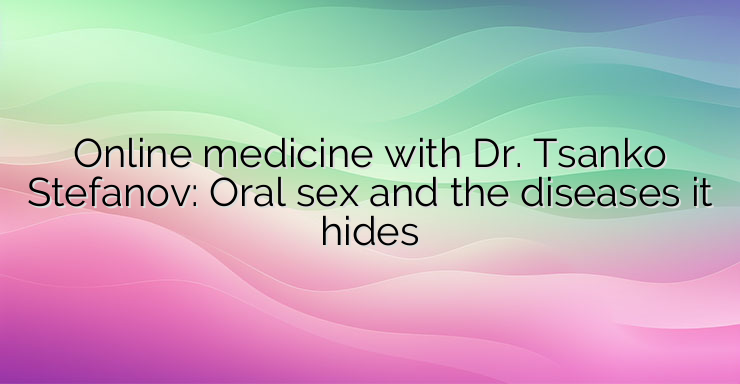Summer is the season of passion. Therefore, experts remind that oral sex is associated with the risk of infection or transmission of sexually transmitted infections. Some of the more common ones include chlamydia, gonorrhea, herpes, and human papillomavirus. The spread of these infections can be limited and it is highly recommended that everyone take the necessary precautions to protect themselves from spreading the infection. At a high risk of HIV infection, it is advisable to take preparations that directly treat the viral disease, which can have fatal consequences in the future. Most people do not experience any symptoms of sexually transmitted infections, but any of them can cause serious and long-lasting complications if treatment is not sought promptly. When to see a doctor? If you’ve had unprotected sex or your partner has a proven STD and is experiencing unusual symptoms, it’s a good idea to get some tests done at your local health clinic. Most STDs are completely treatable and do not cause any long-term problems if treated promptly. Ways of prevention There are several ways to prevent or reduce the risk of disease transmission. Condoms. They are recommended to prevent unwanted pregnancy and protect against infections, both during vaginal and oral or anal sex. Inner ring or so-called vaginal/anal condom. This type of protection is placed intravaginally or intraanally before sexual contact for the purpose of protection. Dental barriers. They have a barrier effect between the mouth and the penis, vagina or anus during oral sex. HPV vaccine. Some types of human papillomavirus lead to the development of genital warts or the dangerous complication – cervical cancer. The vaccine is currently an effective method of prevention, but must be administered before the sexually active age. Pre-exposure prophylaxis. Pre-exposure prophylaxis (PrEP) is an effective drug to fight the spread of HIV in risky sexual contacts. In promiscuous behavior, daily intake of this preparation reduces the risk of developing HIV by 90%. You can learn more from Dr. Tsanko Stefanov in the attached video


Leave a Reply